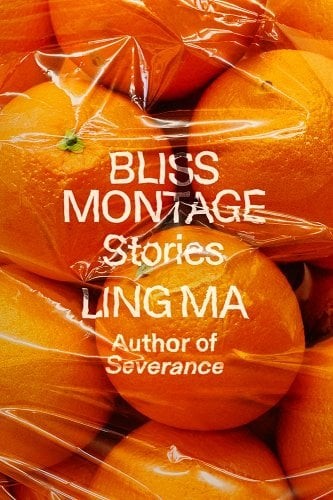Ling Ma has always been fascinated by the conversation between the fantastical and everyday reality. As a writer, she explores these modes through her work in speculative fiction. Her novels often focus on how fantastical elements puncture the veil of "realism,” speak to one’s secret fantasies and projections, and interact with the mundane.
Many things inspire Ma’s work, from the horror genre to contemporary art to the work of Franz Kafka. But the basis of her motivations to write lies in the creative process itself. Using her experience with and observations about the act of writing that can feel so frustrating, she hopes to guide her students through their own anxieties and obsessions as they start out on their paths as writers.
Although she did not initially envision herself writing fiction following her graduation from UChicago, she began working on stories over the years and eventually applied to MFA programs to focus on writing.
After receiving her MFA from Cornell in 2016, she returned to UChicago where she now works as Assistant Professor of Practice in the Arts in the Creative Writing department. She teaches a range of topics through workshops, technical seminars and fundamentals classes, helping students in all genres and levels of writing experience.
Ma has achieved notable success and recognition in her career. Her 2018 debut novel, “Severance,” won a Kirkus Prize for fiction. A speculative fiction story that discusses late-stage capitalism and the Chinese-American diaspora through a combination of post-apocalyptic horror and office satire, Ma describes the novel as a “culmination of her experiences working in the office space.”
Her first short story collection “Bliss Montage” (2022) was published last fall. Selected stories and excerpts have been published in The Atlantic, Granta, The New Yorker, Virginia Quarterly Review and more.

Amidst course instruction, editing her projects and spending time with her family, Ma sat down with the College for a conversation about her work at UChicago and her experiences with writing and publishing. This interview transcript has been edited for length and clarity.
What do you enjoy most about teaching at the College?
I think the students here are very advanced. Many of my students won’t believe me when I tell them this, but I find that the quality of fiction, the level of narrative command rivals anything that I’ve seen in an MFA program. In many cases, their work is even better than what I’ve seen in grad school workshops. It’s all very rewarding to work with.
Most classes in the Program in Creative Writing change from quarter to quarter, year to year. How do you decide what specific topics or themes to cover in yours?
Usually, what I want to teach on techniques or craft elements tends to be what’s on my mind as a writer at the time. It might be something I’m trying to figure out on a project that I’m working on concurrently, and I’ve found that ideally the writing and the teaching kind of go hand in hand.
I really like teaching structure and plot elements, which I find strange because I wouldn’t say that I’m necessarily a plot-driven writer. But for some reason, I find that there are endless ways to talk about plot when dissecting it with my students.
I do think the most challenging thing to teach is voice; I’m still questioning whether voice can really be taught like you can teach most other craft elements, so I’m grappling with whether or not I should make a class around that. Voice is valuable because in my perspective, once you have a compelling voice, once your reader taps into the voice, then it can carry you for pretty long distances.
What does your creative process look like? How do you guide your students through their own?
I find it more difficult to write during the school year, as UChicago courses are very immersive and the students require a lot of attention. But in an ideal world, which might be my summers, I like to do a full day of work. I’ll have a morning shift for drafting, then an afternoon shift for editing, which is my usual way of splitting up a day devoted to writing.
As for guiding my students: I think whatever routine you devise, it shouldn’t go against how you work naturally. If you’re not a morning person, you shouldn’t be trying to wake up at 5 a.m. to write. You're just kind of making that hill a little steeper for yourself, you should try to work with your tendencies.
For my beginning fiction class in the past, I’ve had my students devise writing routines and try to stick with it over the quarter. I think in the end, everyone’s routine changes over time, but what’s important is to just get started and commit to the process. From what I’ve seen, what stops a lot of young writers from writing is usually that they’re looking for permission. Sometimes, the most challenging questions they have and wonder about, they feel like they don’t have the right to write about them.
One way to circumvent this issue is to delineate between a writing problem and a publishing problem. People care about what readers are going to think about them, what their family or friends are going to think about them, if they're going to get canceled or not—these are all publishing problems.
You don't have to ever publish anything if you do not want to. But I think you should try to guard the writing space as an exploratory space, keep it safe for yourself and categorize your fears that have to do with reception as publishing questions. Give yourself a chance to try it out, work it out, write it out, see what happens—what’s the worst thing that could be done? You could always just get rid of the pages, worse comes to worst.